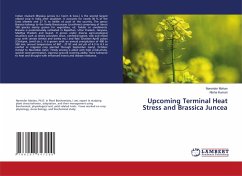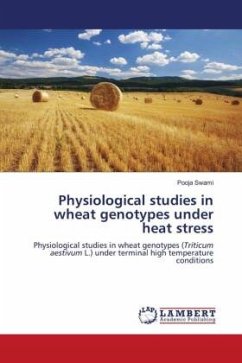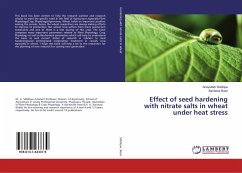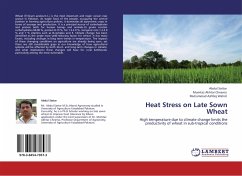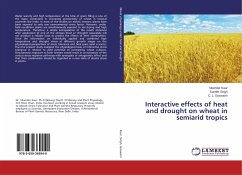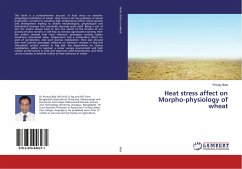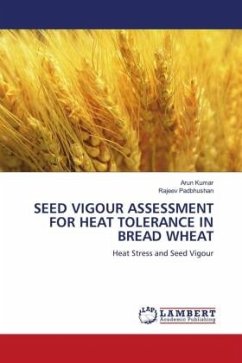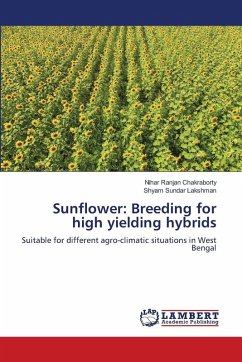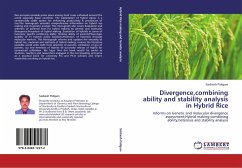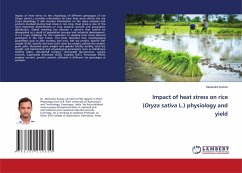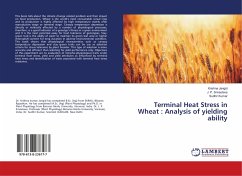
Terminal Heat Stress in Wheat : Analysis of yielding ability
Versandkostenfrei!
Versandfertig in 6-10 Tagen
33,99 €
inkl. MwSt.

PAYBACK Punkte
17 °P sammeln!
This book tells about the climate change related problem and their impact on food production. Wheat is the world's most consumable cereal crop and its production is highly affected by high temperature mainly after reproductive stage or terminal stage. Canopy temperature depression is directly or indirectly affected by a number of physiological processes, therefore, is a good indicator of a genotyp's fitness in a given environment and It is the most potential assay for heat tolerance of genotypes. Stay-green trait is the ability of plant to maintain its green leaf area or higher chlorophyll con...
This book tells about the climate change related problem and their impact on food production. Wheat is the world's most consumable cereal crop and its production is highly affected by high temperature mainly after reproductive stage or terminal stage. Canopy temperature depression is directly or indirectly affected by a number of physiological processes, therefore, is a good indicator of a genotyp's fitness in a given environment and It is the most potential assay for heat tolerance of genotypes. Stay-green trait is the ability of plant to maintain its green leaf area or higher chlorophyll content for long duration in adverse environmental condition. This book shows that physiological characteristics such as canopy temperature depression and stay green traits can be use as selection criteria for stress tolerance by plant breeder. This type of selection is more accurate and efficient than selecting for yield performance only. Objectives of this experiment are to evaluation of morpho-physiological traits under terminal heat stress, yield and yield attributes as influenced by terminal heat stress and identification of traits associated with terminal heat stress resistance.



